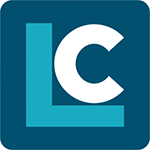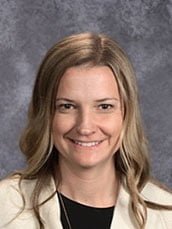Elementary / Students / Counselor Guided Learning
Role of a School Counselor
Parents, the press, administrators and the general public often wonder just what it is that school counselors do on a daily basis. Gone are the days of school counselors sitting in their office simply handing out college applications, making schedule changes for students who want to drop a class or meeting with the troublemakers in the school. Today’s school counselors are vital members of the education team. They help all students in the areas of academic achievement, personal/social development and career development, ensuring today’s students become the productive, well-adjusted adults of tomorrow.
The Need for School Counselors
School counselors are an important part of the educational leadership team and provide valuable assistance to students regardless of whether they work in an elementary school or middle school, high school or beyond. (SchoolCounselor.org)
Why Elementary School Counselors?
“Today’s young people are living in an exciting time, with an increasingly diverse society, new technologies and expanding opportunities. To help ensure they are prepared to become the next generation of parents, workers, leaders and citizens, every student needs support, guidance and opportunities during childhood, a time of rapid growth and change. Children face unique and diverse challenges, both personally and developmentally, that have an impact on academic achievement.”
– “Toward a Blueprint for Youth: Making Positive Youth Development a National Priority,” U.S. Department of Health and Human Services
Elementary School Students’ Developmental Needs
The elementary years are a time when students begin to develop their academic self-concept and their feelings of competence and confidence as learners. They are beginning to develop decision-making, communication and life skills, as well as character values. It is also a time when students develop and acquire attitudes toward school, self, peers, social groups and family. Comprehensive developmental school counseling programs provide education, prevention and intervention services, which are integrated into all aspects of children’s lives. Early identification and intervention of children’s academic and social/emotional needs is essential in removing barriers to learning and in promoting academic achievement. The knowledge, attitudes and skills students acquire in the areas of academic, career and social development during these elementary years serve as the foundation for future success.
Meeting the Challenge
Elementary school counselors are professional educators with a mental health perspective who understand and respond to the challenges presented by today’s diverse student population. Elementary school counselors don’t work in isolation; rather they are integral to the total educational program. They provide proactive leadership that engages all stakeholders in the delivery of programs and services to help students achieve school success. School counselors align with the school’s mission to support the academic achievement of all students as they prepare for the ever-changing world of the 21st century. This mission is accomplished through the design, development, implementation and evaluation of a comprehensive, developmental and systematic school counseling program. ASCA’s Mindsets & Behaviors for Student Success are the foundation for this work. The ASCA National Model: A Framework For School Counseling Programs (ASCA, 2002), with its data-driven and results-based focus, serves as a guide for today’s school counselor who is uniquely trained to implement this program.
Elementary School Counselors Implement the School Counseling Program by Providing:
School Guidance Curriculum
- Academic support, including organizational, study and test-taking skills
- Goal setting and decision-making
- Career awareness, exploration and planning
- Education on understanding self and others
- Peer relationships, coping strategies and effective social skills
- Communication, problem-solving and conflict resolution
- Substance abuse education
- Multicultural/diversity awareness
- Individual student planning
Academic planning
- Goal setting/decision-making
- Education on understanding of self, including strengths and weaknesses
- Transition plans
Responsive Services
- Individual and small-group counseling
- Individual/family/school crisis intervention
- Conflict resolution
- Consultation/collaboration
- Referrals
System Support
- Professional development
- Consultation, collaboration and teaming
- Program management and operation (SchoolCounselor.org)
Counselor
View or Download
Support
Contact SES
"*" indicates required fields












